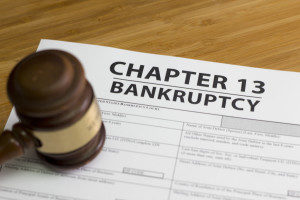St. Louis Chapter 13 Bankruptcy

Understanding Chapter 13 Bankruptcy in St. Louis
Chapter 13 bankruptcy — which is sometimes called “wage earner’s bankruptcy” — is the second-most common type of bankruptcy for individuals (after Chapter 7). However, there are many enduring myths and misunderstandings about filing for Chapter 13 bankruptcy in St. Louis; including those that are perpetrated by creditors who deliberately mislead debtors into making huge payments vs. avail themselves of the advantageous legal protections provided by a Chapter 13 filing. At the Law Office of Charles H. Huber, our team regularly meets with clients who have been misinformed about what a Chapter 13 filing is, and what the process looks like.
To help address some of these fundamental misunderstandings, we’re pleased to provide the following overview of Chapter 13 bankruptcy in St. Louis:
The Essence of Chapter 13 Bankruptcy
A Chapter 13 filing entitles debtors with sufficient income repay all or some of their debts through a structured and court-approved reorganization plan that typically lasts 3-5 years. This is different from a Chapter 7 filing, in which certain assets are liquidated to repay creditors.
Avoiding Foreclosure
One of the biggest advantages of a Chapter 13 filing is that debtors can eliminate most of their unsecured debts and keep their home, provided that they make required mortgage payments under the reorganization plan. Note that while debtors can arrange to make up for missed mortgage payments over time, new mortgage payments from the time of filing must be made on time.
Preparing to File for Chapter 13 Bankruptcy in St. Louis
A Chapter 13 bankruptcy filing is highly complex and there are a multitude of rules, deadlines and details. As such, debtors are strongly advised to retain an experienced consumer bankruptcy attorney who will work with them to gather, organize and verify documentation related to the following:
- A list of all creditors and their respective claim amounts.
- A complete list of the debtor’s property.
- All contracts and agreements in the debtor’s name.
- Full disclosure of the debtor’s income, and all sources of income (e.g. employment, investment, government payments, rental income, etc.).
- A detailed breakdown of the debtor’s monthly living expenses.
- The debtor’s tax information, including a copy of the most recent Federal tax return, and (if applicable) an up-to-date statement of any unpaid taxes.
- Proof of filing State and Federal tax returns for the last four years.
All required documentation must be submitted to the court within 14 days of filing. Failure to provide complete documentation will result in a delays, and could result in a case being dismissed. In addition, debtors must also stipulate that they have not had a bankruptcy petition dismissed within 180 days immediately prior to filing due to their unwillingness to appear in court.
Creditors Must Cease Contact
Once a debtor files for Chapter 13 bankruptcy, under the law all creditors must immediately cease all attempts to communicate with the debtor, such as through letters, emails, text messages, and phone calls. All collection activity or proposed collection activity (e.g. wage garnishment) must also cease.
Credit Counseling
Debtors must enroll in online or in-person credit counseling from an approved agency within 180 days immediately after filing a Chapter 13 bankruptcy petition.
Prohibition for Stockbrokers and Commodity Brokers
The bankruptcy code prohibits stockbrokers and commodity brokers from filing for Chapter 13 bankruptcy, even if their debts in question are personal and not related to their business activities.
Submitting the Reorganization Plan
Once all required documentation has been submitted to the court, debtors (through their bankruptcy attorney) must propose a detailed reorganization plan that resolves their debts over a period of 3-5 years. Once received by the court, a judge or administrator will schedule a hearing to verify that the reorganization plan is compliant, fair and achievable. During this hearing, creditors have the opportunity to raise objections. However, the court has the final say on whether the reorganization plan is accepted.
Executing the Reorganization Plan
Once the reorganization plan is accepted by the court, debtors must ensure that they make all payments on time — including mortgage payments. Failure to comply with all terms could result in the case being dismissed.
If a debtor’s financial situation improves, then it is possible to accelerate payments and seek an earlier discharge. If a debtor’s financial situation worsens, then it is up to him or her to inform (through their bankruptcy attorney) the trustee and propose modifications. And such potential changes must be supported by evidence such a medical diagnosis that will require significant out-of-pocket expenses, etc.
Discharge from Chapter 13 Bankruptcy
Once the initial or modified reorganization plan is faithfully completed, debtors are formally discharged from the bankruptcy proceedings. The discharge releases them from all debts under the plan (or disallowed), except for those that are non-dischargeable such as child support alimony, student loans, court-ordered restitution, and unpaid taxes. Creditors that received full or partial payment under the plan are forbidden from initiating or pursuing any further legal action to collect the discharged obligations.
Learn More About Chapter 13 Bankruptcy
Are you considering filing for Chapter 13 bankruptcy in St. Louis? Then give the Law Office of Charles H. Huber a call today or contact us through our website. We have over 30 years of experience in bankruptcy services, and will provide you with the answers and insights you need to manage your debt and get the full legal protection you want, need and deserve.
Remember, regardless of what creditors or others may tell you: it is your legal right to file for Chapter 13 bankruptcy in St. Louis!


